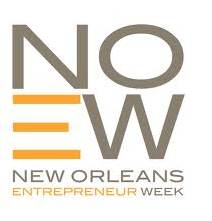Don’t Over-Hype Your Project
Securities Law
Articles on Securities Law
A series of articles provided by Michael T. Raymond, a securities attorney with the Detroit, MI, law firm Raymond & Walsh, and an Adjunct Professor at the Wayne State University Law School.
The purpose of this series is to acquaint readers with the basics of securities law. Securities law governs the raising of capital for business purposes.
12. Dangers of Product Hype
In the high-tech industry, “product hype” is somewhat a way of life. For example, computer companies tend to announce products well in advance of the time they actually appear in the market.
Often, these announcements occur before the true and complete capabilities of the product are known and have been fully tested. Unfortunately, this corporate communication practice is at odds with certain basic precepts found under federal and state securities laws.
One fairly recent case is especially instructive on this topic. On May 30, 1991, a federal jury in San Diego rendered a surprising verdict concerning a 1982 press release issued by Apple Computer, Inc. issued by Apple Computer, Inc.
Although the jury declined to hold Apple Computer and several of its executives liable for securities fraud due to misleading statements contained in the press release, the jury did find two executives personally liable for damages up to $100 million. The two unfortunate executives were Apple Computer’s CEO and the head of Apple Computer’s division which produced the Twiggy disk drive.
The securities fraud was predicated on Apple Computer’s rather precarious introduction of the Lisa computer and Twiggy disk drive in 1983. A 1982 press release (which was the subject matter of the securities fraud litigation) included the usual level of “product hype” associated with new computer industry products.
Such statements as Twiggy “ensures greater integrity of data than other high density drives” and Twiggy “has undergone extensive testing and design verification during the past year” appeared in the press release.
It was successfully demonstrated by Apple Computer’s adversary that, at the time these statements were made, internal tests conducted by Apple Computer staff people had concluded quite to the contrary.
In particular, the internal test results had revealed Twiggy’s lack of reliability. Ultimately, the jury found that the Apple Computer executives’ failure to properly characterize the propensities of the product violated federal securities laws.
As an inventor or entrepreneur, you may say to yourself, “Okay, so what? I’ll wait until I’m a multi-national public company before I worry about this”. Wrong! The Apple Computer case drives home a basic point which is applicable to small and emerging businesses — written and verbal communications, such as over-zealous, unfounded product hype, can bring on securities fraud liability.
Clearly if product hype occurs within the ambit of an offering document, or is made as a direct incident to a securities selling effort, liability may follow.
Whether liability will follow depends on whether the product hype was “materially misleading” under the antifraud provisions of the securities laws. To that end, if the product hype was so speculative and lacking in factual foundation that a court would consider it inherently unreasonable, the court most likely would conclude that the product hype was materially misleading.
Thus, the decision on when and how much product hype to engage in ultimately boils down to common sense. Although in most day-to-day commercial contexts, product hype will not bring on securities fraud liability, in the special circumstances of a securities offering, a company should proceed with caution.
The bottom line — When selling to investors, entrepreneurs and inventors should temper their need to tout the propensities of their product with these countervailing antifraud considerations.






Leave a Reply